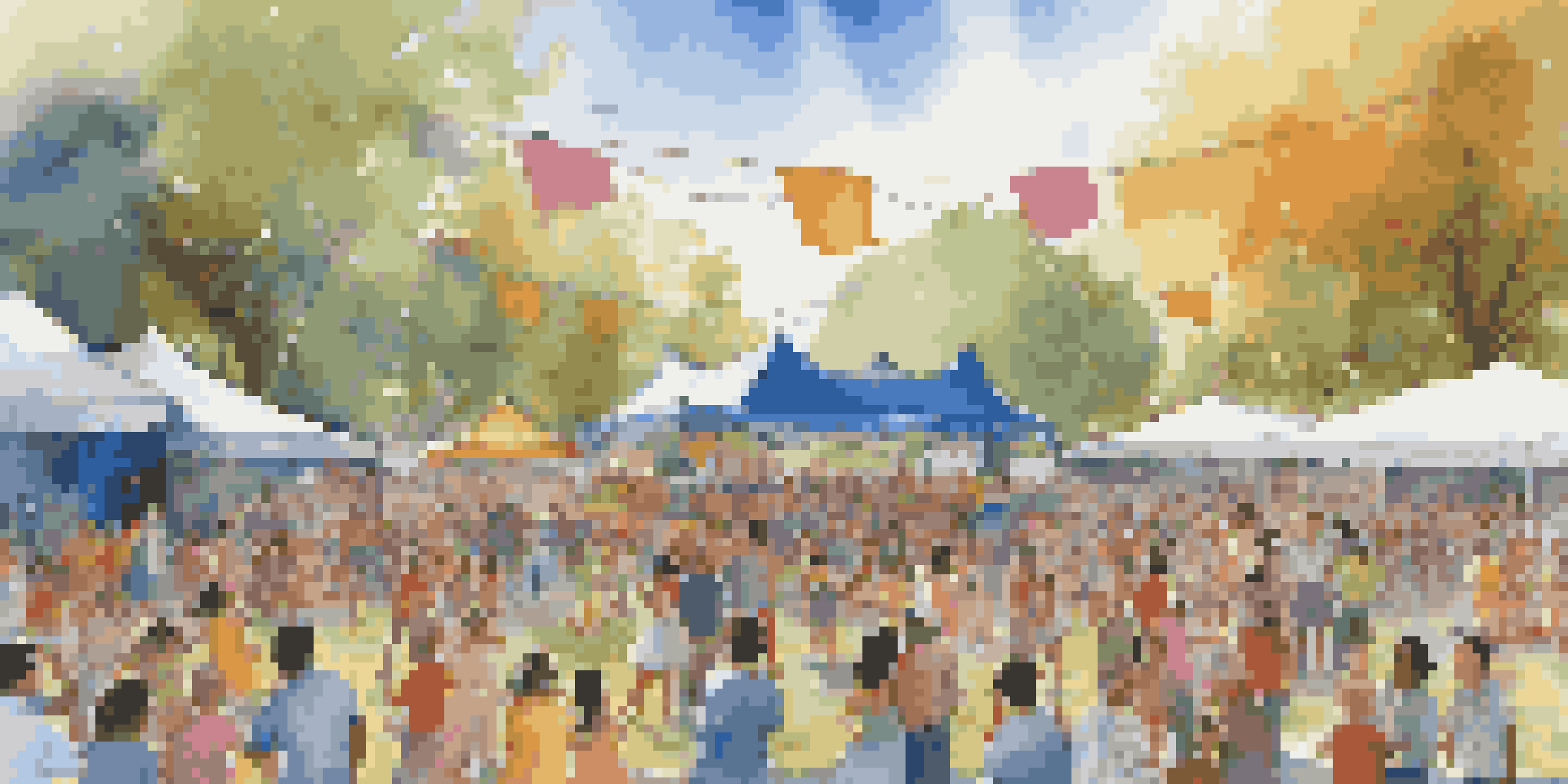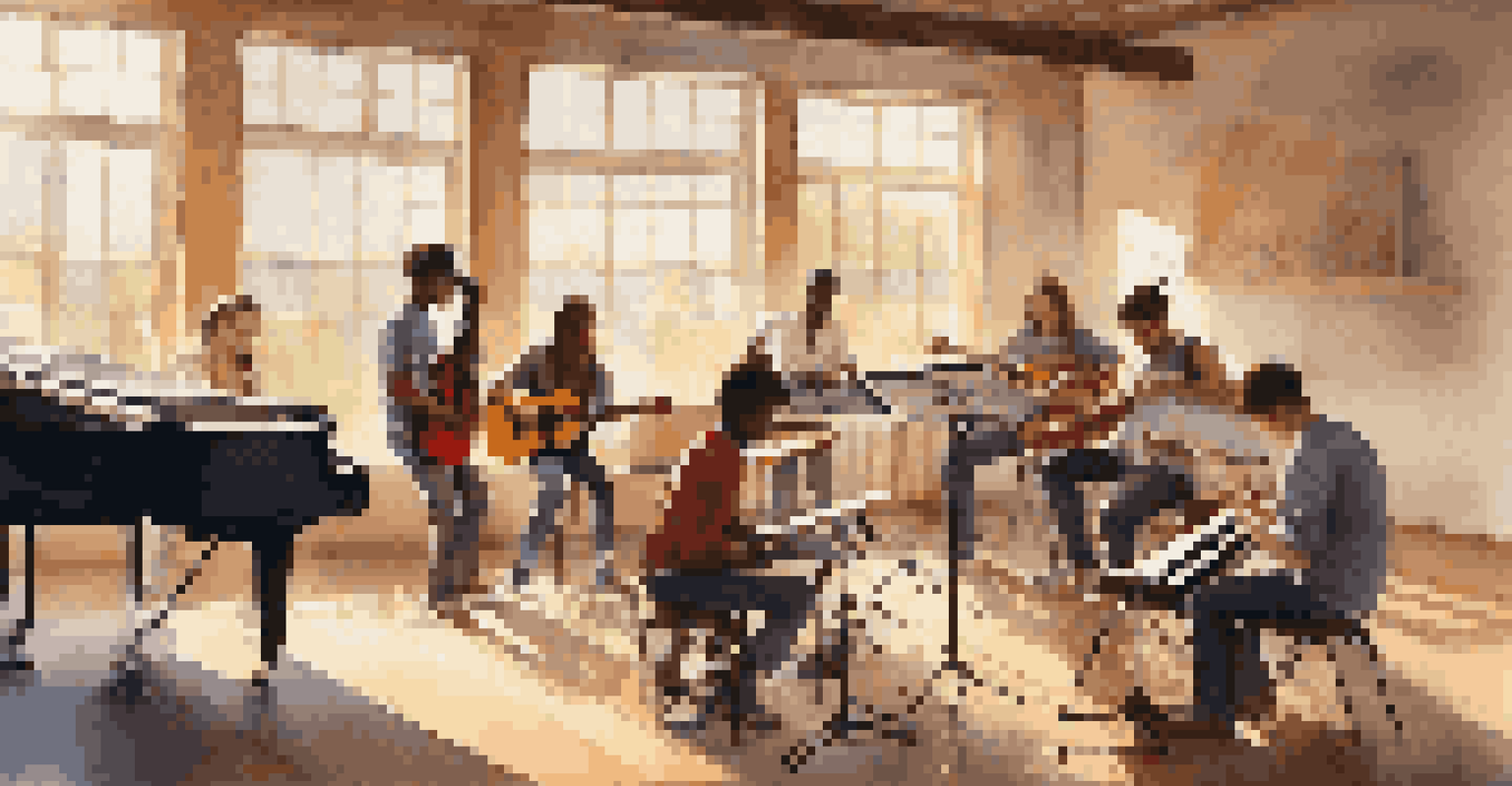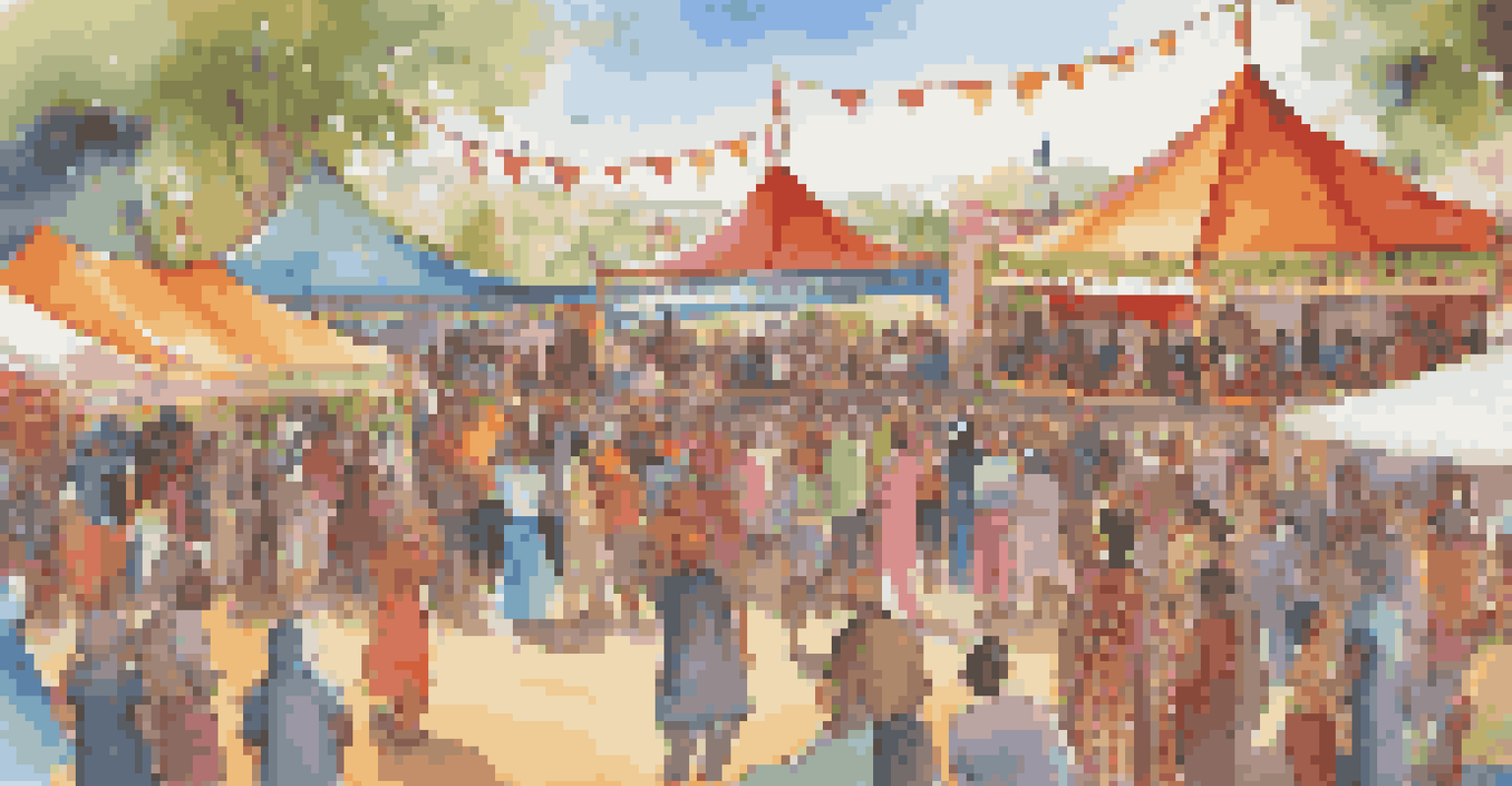How Music Can Enhance Civic Engagement in Communities

The Power of Music in Bringing People Together
Music has a unique ability to unite individuals from diverse backgrounds. It serves as a universal language, fostering connections and breaking down barriers. When people gather to enjoy music, they often find common ground, which can lead to deeper conversations about community issues.
Without music, life would be a mistake.
Consider a local concert in a park where families, friends, and strangers come together to share in the experience. This shared enjoyment can spark discussions about local challenges and initiatives. By creating a welcoming atmosphere, music encourages civic engagement by making people feel more connected to one another.
Ultimately, music acts as a catalyst for community bonding, paving the way for active participation in civic matters. When individuals feel a sense of belonging, they’re more likely to get involved in local activities, whether it’s attending town hall meetings or volunteering for community projects.
Creating Awareness Through Musical Events
Musical events are not just about entertainment; they can serve as platforms for raising awareness about important social issues. Nonprofits and community groups often use concerts and festivals to highlight causes, drawing attention to matters that require civic action. For instance, a benefit concert for local homelessness can educate attendees on the issue while inspiring them to contribute.

These events can feature speakers, informational booths, and opportunities to sign petitions or volunteer. By combining music with advocacy, organizers can reach a broader audience, making it easier for people to engage with the cause. When attendees leave with new knowledge, they are more likely to take action.
Music Unites Diverse Communities
Music serves as a universal language that fosters connections among individuals from different backgrounds, encouraging deeper conversations about community issues.
Thus, music becomes a vehicle for change, transforming a simple gathering into a powerful movement for civic engagement. As people enjoy the rhythm and melodies, they also absorb messages that resonate deeply within the community.
Music as a Tool for Cultural Expression and Identity
Music often reflects the cultural heritage and identity of a community, providing a platform for individuals to express themselves. By celebrating local artists and traditional genres, communities can strengthen their cultural ties and foster pride. This pride can motivate residents to engage more actively in civic activities, as they seek to preserve and promote their unique identity.
Music can change the world because it can change people.
Take, for example, a local music festival that showcases various cultural performances. Such events not only entertain but also educate attendees about different histories and traditions. The appreciation for diverse cultures can lead to greater empathy and understanding, essential components of civic engagement.
As community members embrace their identities through music, they often feel a sense of responsibility to contribute positively to their surroundings. This connection between music and identity can ignite a passion for community involvement and activism.
Building Community Resilience Through Collaborative Music
Collaborative music projects can play a crucial role in building resilience within communities. When individuals come together to create music, they develop teamwork and communication skills, which are essential in addressing civic challenges. These collaborative efforts can range from community choirs to neighborhood bands, all fostering a spirit of cooperation.
For instance, a community choir might bring together residents from various backgrounds to sing and share stories. As they harmonize, participants learn to listen to each other, building trust and camaraderie. This collaboration can extend beyond music, motivating members to work together on local issues.
Awareness Through Musical Events
Musical events can raise awareness about social issues, transforming entertainment into platforms for civic engagement and advocacy.
Through these shared experiences, communities become more cohesive and better equipped to tackle problems. The resilience built through music can empower individuals to take ownership of their environment, encouraging active participation in civic matters.
Engaging Youth with Music for Civic Involvement
Music programs targeted at youth can significantly boost civic engagement among younger generations. By providing opportunities for teens to express themselves creatively, communities can inspire them to take an active role in local affairs. When young people are involved in music, they often develop a sense of purpose and belonging.
Consider a youth band that participates in community events. These young musicians not only entertain but also learn about the importance of civic duty and community involvement. Their engagement can lead to greater awareness of local issues and inspire their peers to join in.
Investing in music education and programs for youth creates a pipeline of engaged citizens who are likely to carry their passion for community involvement into adulthood. Music, therefore, plays a vital role in cultivating a new generation of active participants in civic life.
Fostering Dialogue and Discussion Through Music
Music can serve as a powerful medium for fostering dialogue and discussion about pressing social issues. Lyrics often reflect personal experiences and societal challenges, prompting listeners to reflect on their own lives and communities. This reflection can ignite conversations about civic responsibilities and encourage individuals to think critically about their role in society.
For instance, songs that address themes of inequality or justice can resonate deeply, leading listeners to engage in discussions about these topics. Music can break the ice, making it easier for people to share their thoughts and feelings about local challenges. As these dialogues unfold, communities can identify common goals and collaborate on solutions.
Empowering Youth Through Music
Music programs for youth inspire a sense of purpose and belonging, leading to increased civic involvement and creating engaged future citizens.
Ultimately, music becomes a bridge for conversation, giving people the courage to voice their opinions and advocate for change. Through these discussions, civic engagement flourishes as individuals unite under shared values and visions for the future.
The Lasting Impact of Music on Civic Engagement
The influence of music on civic engagement extends beyond immediate experiences; it can create lasting impacts on communities. When residents actively participate in music-related events, they often carry the motivation to engage in civic activities long after the music fades. This ongoing participation can lead to sustainable change within the community.
For instance, those inspired by a music festival may become more involved in local governance or volunteer for community projects. As these individuals continue to engage, they inspire others to follow suit, creating a ripple effect that strengthens civic participation across the board.

In this way, music becomes a cornerstone of community activism, leaving an enduring legacy of engagement. By nurturing a culture of involvement through music, communities can work together to build a brighter, more connected future.